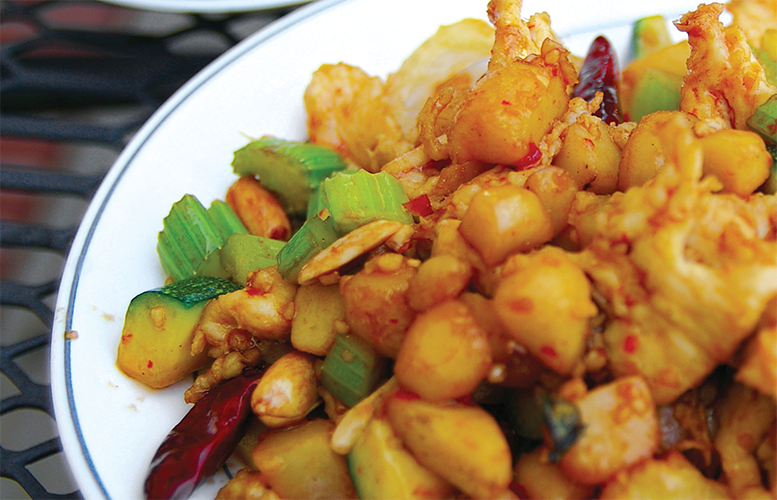
The University Caterers’ Organisation (TUCO)
Unified purchasing
Tuco is the national collaborative purchasing group for over 130 universities
Today’s universities, the institutions responsible for nurturing the crème de la crème of Britain’s youth, are often judged on their ability to deliver what is termed ‘the total student experience’. Effective catering, a key part pf this, is believed to make a significant contribution to this overall experience. In order to successfully provide ‘the total student experience’, senior university managers are encouraged to facilitate better integration and collaboration between core functions, catering and other support services to allow for continuous improvement.
This is where The University Caterers’ Organisation (TUCO), the collaborative voice for university catering managers, comes in, as Barry Trahar, chairman of TUCO’s National Purchasing Group explains: “We are a representative purchasing group for 130 universities and colleges around the UK and actively encourage integration and communication between our members. We are a voluntary organisation, which has over 20 years buying experience initially for soft drinks and beer. Although we have had national procurement strategies for drinks for many years, we only recently started looking at how we could use our knowledge to develop national procurement strategies for other commodities, particularly foodstuffs. It goes without saying that universities and other higher education institutions benefit hugely from our collective membership’s purchasing power.
“We are the lead catering procurement organisation in the further and higher education sector, in what has become a multi million pound industry,” says Barry. “TUCO is a lot more than a simple purchasing group – our activities are much broader than that – but purchasing is one of our core strengths and major draws. We promote industry-wide solidarity, as well as training and development courses for catering effectiveness.”
He adds: “As an organisation, we have been running for many years now. Initially, TUCO was a small group of catering officers, which had the goal of establishing a collective voice. So, periodically, we would meet and discuss the issues central to us all. Needless-to-say, purchasing is a major issue.  Purchasing has been central to our work since the early days, but back then it was a fairly low-key affair. Originally, these small regional voices would invite suppliers in to talk about price, but the resulting agreements were very informal, and provided a sound basis for future collective procurement because of a strong philosophy of working together. These ideals predate many of the formal aspects of modern purchasing and certainly forgo any notion of present day tendering. However, we did have some supplier agreements, but they were far from standard and varied from institution to institution.”
Purchasing has been central to our work since the early days, but back then it was a fairly low-key affair. Originally, these small regional voices would invite suppliers in to talk about price, but the resulting agreements were very informal, and provided a sound basis for future collective procurement because of a strong philosophy of working together. These ideals predate many of the formal aspects of modern purchasing and certainly forgo any notion of present day tendering. However, we did have some supplier agreements, but they were far from standard and varied from institution to institution.”
Barry, himself the residential services manager for the University of Bristol, knows all about the benefits of TUCO membership, and he told us more: “We offer solidarity and togetherness. Being part of TUCO means that you have a larger voice and generally get a better deal from suppliers. Suppliers value consistency and commitment and we aim to provide that as customers.
“Universities, as institutions, buy a wide range of commodities and services. For sometime now, universities have utilised purchasing consortia, which incorporated catering, as well as areas like transport, library books, building materials and cleaning materials. Although TUCO was responsible for national purchase of beers, soft drinks, cider and wines and spirits, food and other commodities were still brought through regional agreements. This changed in 2000 when the National Audit Office carried out an extensive report on procurement within the university sector. It concluded that universities would benefit from looking at procurement in a national context.”
Barry continues: “The NAO report was a spur to TUCO to look at procurement in a national sense – examining whether aspects of what we were doing with drinks could lend themselves to other commodities. We spent a few years looking at how the whole the process worked; how we could move to a more national procurement strategy while not losing sight of regional agreements then in place; and also how, as a voluntary organisation, we could get this off the ground and up and running.
“We developed what is now a clear policy, which balances aspects of both regional and national procurement. It depends very much on the type of commodity, how widely it is used, whether there is commonality of suppliers and whether the nature of the commodity lends itself to a national agreement.”
Looking at the general management of this, TUCO decided that it would probably be best to appoint a third party service provider who would undertake all of the procurement administration on our behalf. This is because, as a voluntary group, we don’t have the resources to meet this particular challenge. Once our members had agreed to this, and appointed a suitable third party service provider, we drew up the purchasing policy that now serves numerous institutions up and down the country.”
Indeed, TUCO appointed Collective Enterprises Limited (CEL) as the service provider, tasked with offering administrative support for all of TUCO’s purchasing activities. The appointment commenced on 1st November 2003 and the contract runs for a period of six years. The national purchasing group has put a great deal of effort into creating tenders, which accurately reflects its specialist needs. CEL has also devoted a great deal of time and care in the tendering and selection process, to help TUCO select suppliers with the experience and resources necessary to meet its requirements.
CEL’s role is twofold, as Barry concludes: “CEL’s primary task was to take over the administration of our four existing national drinks agreements. Its secondary task was to tender food and non-food commodities that lend themselves to national agreements. Where we have been able to let a national agreement, CEL has taken on the contract administration. There are no guarantees that we will be able to move beyond the number of agreements we have at present, but the role of the Purchasing Group is to support the requirements of the members by researching commodity areas for potential tenders. It is important to remember that with TUCO, institutions can be sure that they are getting the best possible deal, as well as the necessary advice, training and development to help them nurture their own procurement strategies and ultimately get the best deal available to them. All of this goes some way in helping the institution deliver ‘the total student experience’ by which they are now judged.”